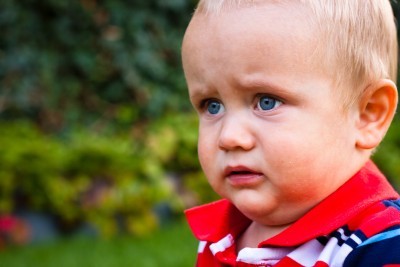A staggering one in three children with autism has suffered a sudden regression in their second year of life.
 The new finding comes from comparing 85 studies published between 1980 and 2010, representing almost 30,000 participants with an ASD diagnosis.
The new finding comes from comparing 85 studies published between 1980 and 2010, representing almost 30,000 participants with an ASD diagnosis.
The meta-analytic review was carried out at the US-based University of Georgia.
The researchers looked at different types of regression, based on whether the children had lost abilities in language, social skills, or other areas such as daily living or motor skills.
They found that the average age of children regressing into autism, based on the studies, is 21 months.
Most children with autism are thought to develop normally and then plateau or display symptoms of the disorder from birth. However, one-in-three cases are now known to develop normally and then suddenly regress.
The cause and definition of ‘regressive autism’ are plagued by controversy. Some believe that regressive autism is simply early-onset autism that was not spotted until a later stage in the child’s development.
However, research is emerging that shows a pattern of regressive autism in males, characterized by the children having brains that are six per cent larger than expected if they had early-onset autism. The brains of females with regressive autism are no different in size to those with early-onset autism.
Studies are underway to determine if regressive autism has an autoimmune basis.
David Amaral, research director of the MIND Institute at University of California, Davis, who conducted the brain study, said: “This adds to the growing evidence that there are multiple biological subtypes of autism with different neurobiological underpinnings.”
Other disorders that involve regression in children’s development are childhood disintegrative disorder, Rett syndrome and Landau-Kleffner syndrome.
Published: 29 September 2012















